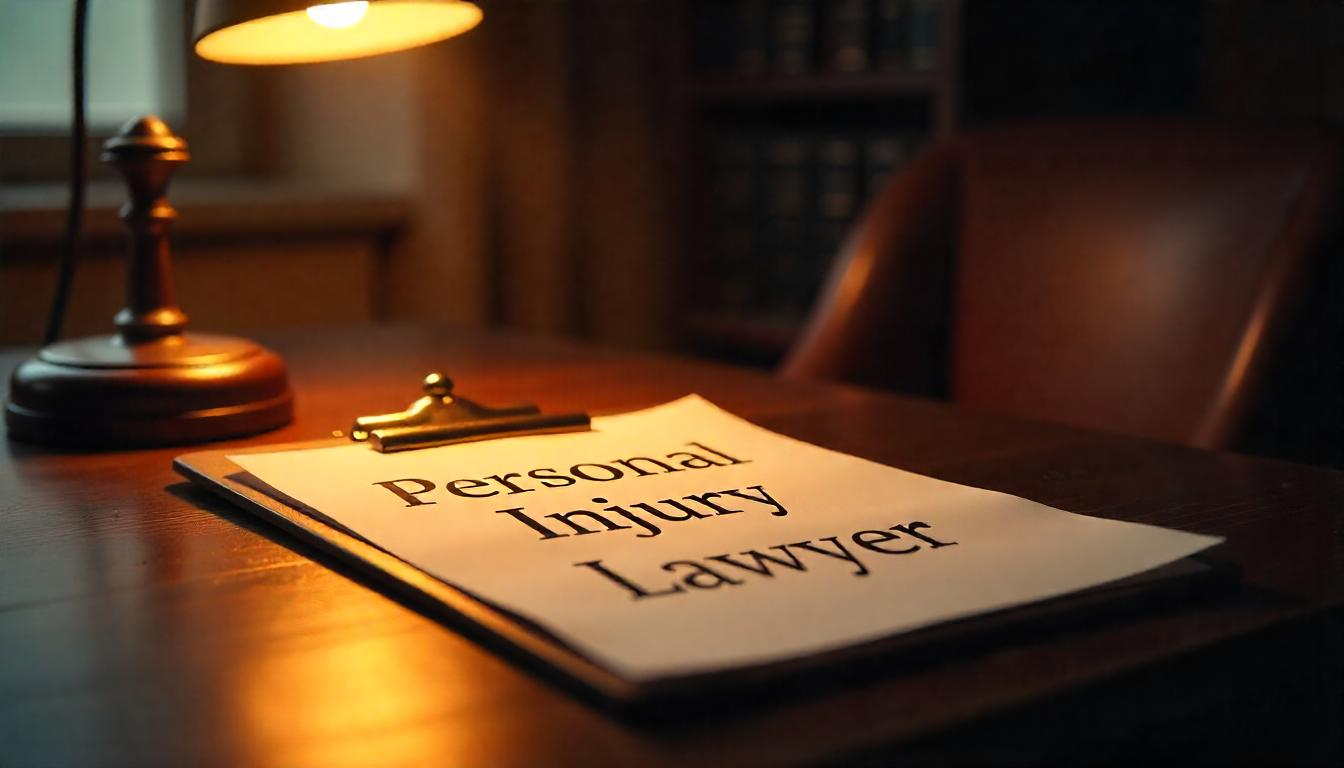When someone suffers a personal injury due to another person’s negligence, they have the legal right to seek compensation. These compensations are known as types of personal injury damages. The law categorizes these damages into different types, depending on the impact they have on the victim’s life. A survey conducted by the Injuries Resolution Board in Ireland in 2024 found that public awareness of the Board, which is responsible for resolving personal injury claims, was at 53%. This indicates that a significant portion of the population may not be fully aware of their rights and options for compensation.
That’s why understanding these damages is important if you ever find yourself in a personal injury case. Today, we’ll explore 8 types of personal injury damages, explaining what they are and providing examples to help you understand how they apply in real life.
Here are the topics we’ll cover today,
- Types of personal injury damages
- Which is the best law firm for personal injury cases
With that said, let’s go over the types of damages you can suffer with a personal injury.
Types of Personal Injury Damages
Here are some of the most common types of damage one at a time so you have a better understanding of what steps you should take.
1. Compensatory (Economic) Damages
Compensatory damages, also known as economic damages, are designed to cover the actual financial losses a victim suffers due to an injury. These damages help restore the victim to their financial position before the accident.
Types of Economic Damages:
- Medical bills, including hospital visits, surgeries, and physical therapy.
- Lost wages if the victim is unable to work due to injuries.
- Property damage, such as repairing or replacing a damaged car.
Example Scenario:
John is driving to work when another driver runs a red light and crashes into his car. John suffers a broken leg and requires surgery. He also misses two months of work. His medical bills and lost wages fall under compensatory (economic) damages.
2. Non-Economic Damages
Non-economic damages compensate for the emotional and psychological suffering a victim goes through. Unlike economic damages, these types of personal injury damages do not have a direct financial value but are still significant.
Types of Non-Economic Damages:
- Pain and suffering caused by the injury.
- Emotional distress, including anxiety, depression, or PTSD.
- Loss of enjoyment of life if the victim can no longer engage in hobbies or activities.
Example Scenario:
Lisa was severely injured in a car accident. Even after her physical recovery, she develops anxiety and is afraid to drive again. She also can’t participate in her favorite outdoor activities due to her injuries. The emotional impact and life changes she experiences qualify as non-economic damages.
3. Punitive Damages
Punitive damages are awarded in cases where the defendant’s actions were reckless, malicious, or extremely negligent. It’s one of the most common types of personal injury damages. The goal of these damages is to punish the wrongdoer and prevent similar behavior in the future.
Types of Punitive Damages:
- A drunk driver causing a fatal accident.
- A company knowingly sells a defective and dangerous product.
- A doctor performing surgery while under the influence of drugs.
Example Scenario:
A company manufactures and sells a car with defective brakes, even after knowing about the issue. A buyer, Mark, gets into a serious accident due to brake failure. The court may award punitive damages to punish the company for ignoring safety risks.
4. Wrongful Death Damages
Wrongful death damages apply when someone dies due to another person’s negligence. These damages are meant to compensate the victim’s family for their loss.
Types of Wrongful Death Damages:
- Funeral and burial expenses.
- Loss of financial support if the deceased was the family’s main provider.
- Emotional suffering and loss of companionship.
Example Scenario:
Emily’s husband, a construction worker, dies due to unsafe working conditions at his job site. His family sues the company for wrongful death damages, including funeral costs and lost income.
5. Loss of Consortium Damages
Loss of consortium damages compensate family members for the loss of companionship, affection, or support due to the victim’s injury. These damages usually apply to spouses or children.
Types of Loss of Consortium Damages:
- A spouse is unable to have a normal relationship due to the victim’s disability.
- A child losing parental guidance after a serious injury.
Example Scenario:
Michael is permanently paralyzed in a motorcycle accident caused by a reckless driver. His wife sued for loss of consortium damages because their relationship has drastically changed due to his disability.
6. Incidental Damages
Incidental damages cover additional expenses that arise as a direct result of the injury. These costs may not fall under standard economic damages but are still necessary for the victim’s recovery and daily life adjustments.
Types of Incidental Damages:
- Costs for transportation to medical appointments.
- Expenses for hiring home care assistance or childcare due to injury.
- Modifications to a home, such as installing ramps for a wheelchair.
Example Scenario:
Sarah suffers a spinal injury in a car accident, making it difficult for her to move around. She needs to install a wheelchair ramp in her home and hire a caregiver for daily assistance. These costs qualify as incidental damages.
7. Nominal Damages
Nominal damages are awarded when a victim has suffered a legal wrong but has not experienced significant financial or emotional harm. These damages serve as a recognition that the defendant was at fault, even if no major compensation is needed.
Types of Nominal Damages:
- A court awarding a small sum (e.g., $1) to acknowledge the plaintiff’s legal rights.
- Used in cases where harm was minor, but wrongdoing still occurred.
Example Scenario:
David is unlawfully detained by security personnel at a store for an hour without cause. While he suffers no financial loss, the court awards him a small amount in nominal damages to acknowledge the violation of his rights.
8. Future Damages
Future damages cover losses that the victim is expected to experience over time due to the injury. These are awarded based on expert predictions about ongoing medical costs, lost earnings, and long-term suffering.
Types of Future Damages:
- Anticipated medical expenses for chronic conditions or long-term rehabilitation.
- Future lost wages if the victim cannot return to work or must take a lower-paying job.
- Projected pain and suffering for ongoing disabilities or impairments.
Example Scenario:
Brian, a construction worker, suffers a severe back injury due to unsafe scaffolding. His doctor determines he will need multiple surgeries in the coming years, and he may never work in his field again. The court awards him future damages for his medical costs and lost earnings.
Which is the Best Law Firm for Personal Injury Cases
If you’ve been injured due to someone else’s negligence, you deserve a law firm that will fight for your rights. Scheuerman Law is the best choice for handling personal injury cases because we are dedicated to securing the maximum compensation for our clients. We understand how overwhelming accidents can be, which is why we make the legal process easy and stress-free. Our experienced attorneys handle all types of personal injury damages cases, including car accidents, workplace injuries, medical malpractice, and wrongful death claims.
What sets us apart is our commitment to personalized attention and results. Unlike big law firms that treat clients like just another case number, we take the time to listen and create a strategy tailored to your needs. Plus, we work on a contingency fee basis, meaning you don’t pay us unless we win your case. With years of experience and a deep understanding of insurance tactics, we make sure you receive every dollar you’re entitled to—covering medical bills, lost wages, pain and suffering, and future damages.
So, if you or a loved one has suffered an injury, don’t wait to take legal action. Call us today at 443-888-2062 for a free consultation! Let’s discuss your case and see how we can help you get the justice you deserve.




